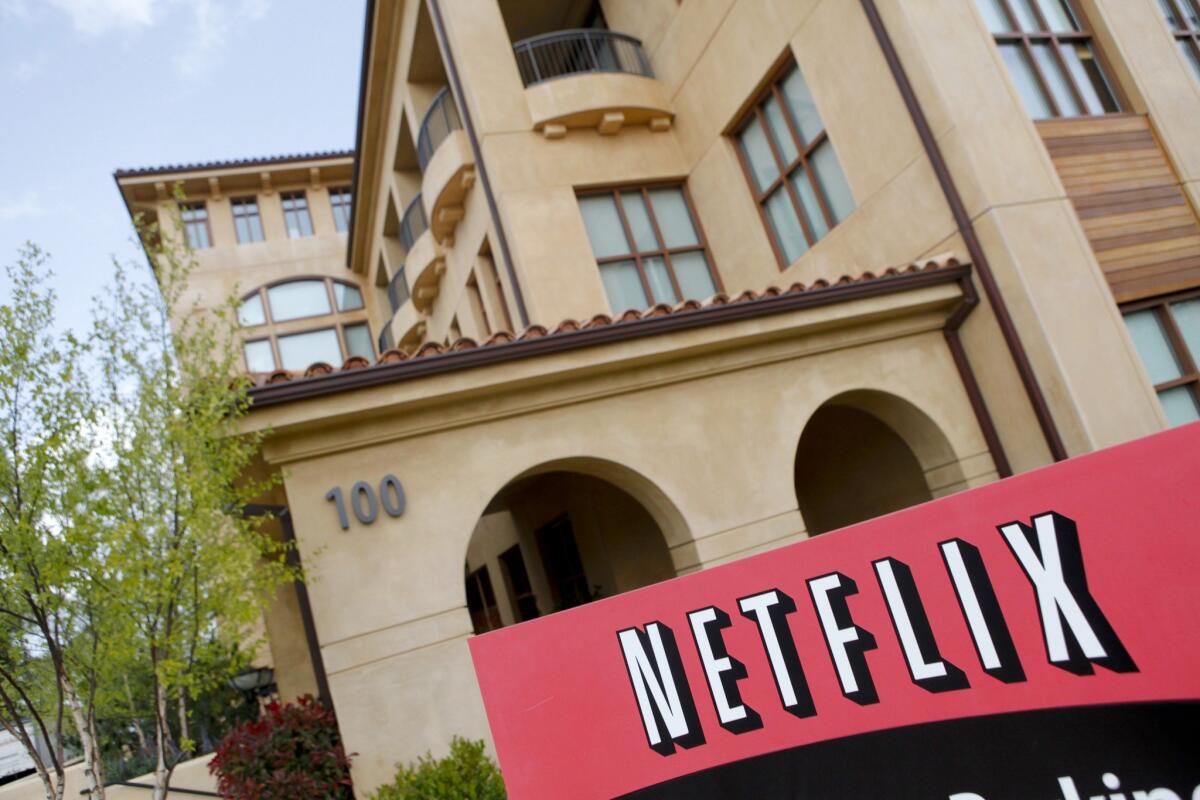Netflix’s tight-lipped culture makes earnings surprises hard to avoid

- Share via
Netflix Inc.’s biggest earnings surprise in years sent the shares plummeting the day after results were released, leaving analysts and investors wondering why they were caught so off guard.
When some companies know that their quarterly results are going to fall short of forecasts, they put out a pre-announcement or update their guidance. But not Netflix.
Instead, the Los Gatos, Calif.-based company dropped a bombshell with no warning on Wednesday: Its customer growth was roughly half what it had projected, and Netflix actually lost U.S. subscribers during the period. That hasn’t happened since 2011, when the company made a disastrous attempt to split up its streaming and DVD-by-mail operations.
The fallout on Thursday included the worst stock rout in three years, with the stock declining 10% to erase more than $16 billion in market value. Shares in Netflix extended those declines on Friday, falling 3% to $315.10 per share, their lowest since January.
“You would think Netflix would want to update guidance or give a pre-annoucement, as I’m sure they definitely knew about this for a while,” said Nick Licouris, an investment adviser at Gerber Kawasaki. “But they probably didn’t want to do it because they were going to take a hit at that time or during earnings — especially since subscriber numbers are the No. 1 thing analysts look at — and in earnings you can spin it better than a stand-alone announcement.”
Another reason not to issue a warning: The company met most of Wall Street’s financial estimates, such as sales and profit. It was only the subscriber numbers that really came up short. There’s also been a broader shift away from giving earnings warnings, said Huber Research Partners founder Craig Huber.
The streaming giant’s tight-lipped culture extends beyond earnings. Unlike traditional media companies, it’s very selective about the viewer information it provides. Third parties try to fill the gaps by providing their own data on Netflix’s audience, but that can prove to be unreliable.
Those kinds of data services failed to predict the latest shortfall, Wolfe Research analyst Marci Ryvicker said in a note.
“For several days,” she said, “investors told us ‘such-and-such data service suggests domestic adds will come in line; while international might be somewhat soft.’ Wrong. I mean — right in the sense that international was soft, but totally wrong on the domestic subs part.”
Though this week’s stock rout was especially severe, it’s common for Netflix’s earnings to spark a huge share move. And there’s another explanation for the huge swings in Netflix’s stock: overreaction. That was the message from Chief Executive Reed Hastings this week. It’s easy to “overinterpret” subscriber figures, he said.
“Sometimes we are forecast high, sometimes we forecast low,” he said. “We’re just executing forward and trying to do the best forecast we can.”
More to Read
Inside the business of entertainment
The Wide Shot brings you news, analysis and insights on everything from streaming wars to production — and what it all means for the future.
You may occasionally receive promotional content from the Los Angeles Times.










